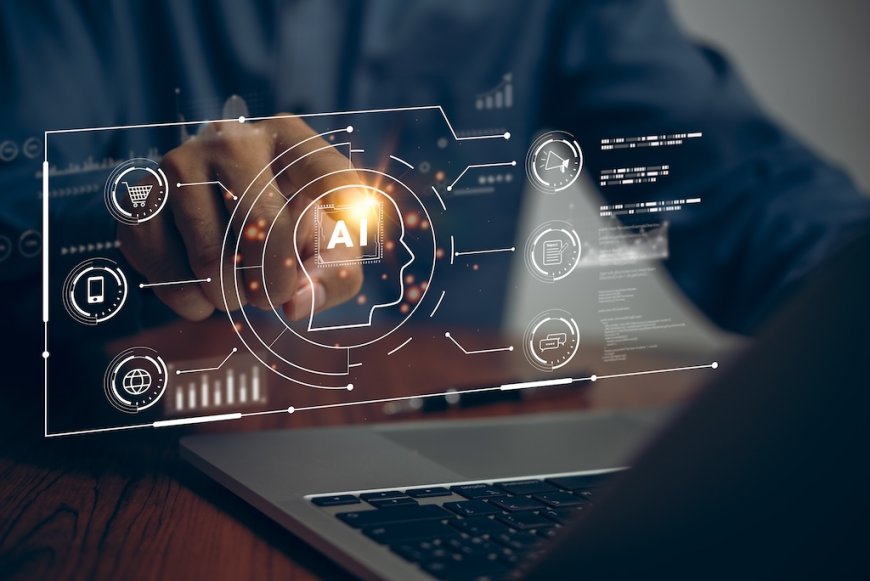AI-Powered CRMs: Revolutionizing Customer Journeys

Introduction: The Future of CRM Is Intelligent
In an era where customer experience dictates brand loyalty and business success, traditional CRM (Customer Relationship Management) systems are no longer sufficient. Static databases and manual updates fail to meet the dynamic expectations of modern consumers. EnterAI-powered CRMssmart, predictive, and transformative tools that are redefining how businesses interact with customers. These platforms leverage artificial intelligence to create deeply personalized experiences, automate repetitive tasks, and offer real-time insights that drive strategic decision-making.
From small startups to enterprise-level corporations, AI-powered CRMs are becoming essential for managing and enhancing the customer journey. This article explores how these intelligent platforms are revolutionizing the CRM landscape, reshaping marketing, sales, and customer service in the process.
Understanding AI-Powered CRMs: What Makes Them Different?
Traditional CRM systems act as databases to store customer information, record interactions, and manage sales pipelines. While useful, they depend heavily on manual input and human oversight, leaving room for error and inefficiency.
AI-powered CRMs, however, bring automation, prediction, and real-time learning to the table. By integrating machine learning, natural language processing, and data analytics, these platforms can:
-
Predict customer behaviorbased on past interactions and current trends.
-
Automate lead scoring, customer segmentation, and follow-up scheduling.
-
Offer personalized marketing recommendationsat scale.
-
Analyze sentimentin emails, chats, and social media.
-
Optimize timingfor engagement to increase conversions.
Leading platforms like Salesforce Einstein, HubSpots AI tools, and Zoho CRM Plus are leveraging these technologies to help businesses stay ahead of their competition.
Enhancing the Customer Journey with AI
Every touchpoint in the customer journeyfrom awareness and acquisition to engagement and retentioncan be optimized through artificial intelligence. Here's how AI-powered CRMs are making a difference at each stage:
1.Lead Generation and Qualification
AI can analyze vast data sets to identify high-quality leads by detecting patterns in user behavior, demographics, and previous interactions. This removes the guesswork from sales and marketing outreach, allowing teams to focus their energy on leads that are most likely to convert.
2.Hyper-Personalization at Scale
Gone are the days of sending one-size-fits-all email campaigns. AI-powered CRMs tailor messaging based on user preferences, purchase history, and online behavior. Whether it's suggesting products, timing emails for higher open rates, or customizing offers, the AI ensures relevance in every interaction.
3.Sales Forecasting and Pipeline Management
Sales teams benefit from AI's ability to predict revenue, identify deal-closing probabilities, and recommend next best actions. This foresight helps managers allocate resources more efficiently and avoid bottlenecks in the pipeline.
4.Real-Time Customer Support
Chatbots and virtual assistants integrated into CRMs handle queries instantly, reducing wait times and improving satisfaction. More advanced systems even escalate issues to human agents based on sentiment analysis or complexity.
5.Customer Retention and Loyalty
AI identifies signals of churn, such as reduced engagement or negative sentiment, and prompts proactive steps to retain those customers. Predictive models can recommend loyalty offers or personalized re-engagement campaigns to win back interest.
Case Studies: AI in Action
Several companies across industries have successfully implemented AI-powered CRMs with tangible results:
-
Sephorauses an AI-based CRM to analyze customer preferences and deliver product recommendations across channels. This has boosted both conversion rates and customer loyalty.
-
Coca-Colaleverages AI to track customer feedback in real-time, helping them adjust campaigns on the fly and maintain positive brand sentiment.
-
Spotifyintegrates AI with its CRM system to create hyper-personalized playlists and marketing communications, enhancing user engagement and time-on-platform.
Benefits Beyond Automation
While automation is one of the most visible advantages, the benefits of AI-powered CRMs go much deeper:
-
Better decision-makingthrough predictive analytics and actionable insights.
-
Enhanced team productivityby reducing manual, repetitive tasks.
-
Improved customer experiencesthanks to personalized, timely communication.
-
Data unificationacross departments, enabling a 360-degree view of the customer.
These systems allow businesses to act not just faster, but smarterproactively addressing needs before customers even express them.
Challenges to Consider
Despite their advantages, AI-powered CRMs come with their own set of challenges:
-
Data privacy and securityremain critical concerns, especially with AI analyzing sensitive customer information.
-
High implementation costscan be a barrier for small businesses.
-
Integration issueswith existing systems may slow down adoption.
-
Training and skill gapsamong employees can hinder effective use.
Choosing the right CRM platform and investing in employee trainingsuch as enrolling staff in anAI Marketing Course Onlinecan help overcome these barriers and unlock the full potential of AI.
Is Your Business Ready for an AI-Powered CRM?
Before making the switch, businesses should evaluate the following:
-
Data maturity: Do you have clean, organized data that AI can analyze?
-
Team readiness: Are your sales, marketing, and support teams trained in using AI tools?
-
Clear goals: Are you looking to improve retention, increase leads, or streamline support?
-
Vendor comparison: Which platforms best align with your size, budget, and objectives?
Understanding these fundamentals ensures a smooth transition and maximizes ROI.
The Road Ahead: AI as a Strategic Partner
The evolution of CRMs into intelligent, learning systems is just beginning. Future advancements may include:
-
Deeper integration with IoT and wearable tech.
-
Emotion recognition for more empathetic engagement.
-
Real-time multilingual support with natural language translation.
-
Seamless omnichannel experience that feels human, not robotic.
As AI continues to mature, CRMs will not just manage relationshipsthey willshapethem.
Conclusion: Embracing AI for Smarter Customer Journeys
AI-powered CRMs are more than a technological upgradethey represent a shift in how businesses understand and engage with their customers. By embedding intelligence into every interaction, companies can offer more value, more efficiently, and at a scale never before possible. Whether you're a growing startup or an established enterprise, the future of customer relationship management lies in AI.
Now is the time to evaluate your CRM strategy and consider how artificial intelligence can help you stay ahead in an increasingly competitive, customer-centric world.


































